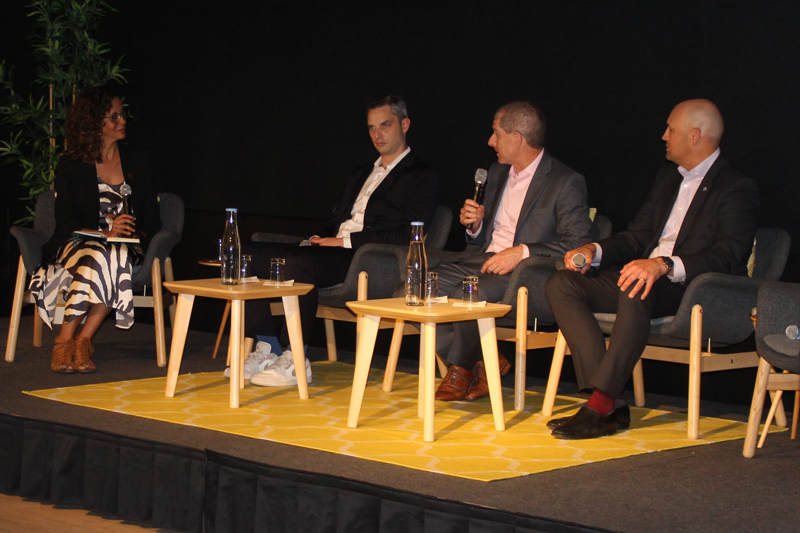Safe Systems Academy: Advancing Road Safety Solutions
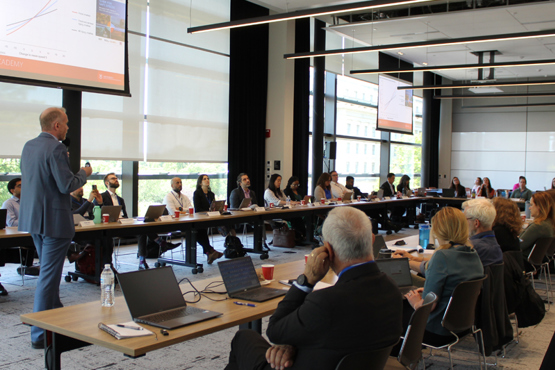
In June 2025, the Johns Hopkins Bloomberg School of Public Health hosted the second annual U.S. Safe Systems Academy, a week-long program designed to transform how communities approach road safety. Held at the Johns Hopkins building near Capitol Hill in Washington, D.C., the Academy gathered 30 participants—ranging from community leaders, to transportation professionals, to a State Delegate —to build technical expertise and foster collaboration rooted in the proven Safe System Approach. This initiative was co-sponsored by the FIA Foundation, the Institute of Transportation Engineers, and the AAA Foundation for Traffic Safety. The program also included a US–Sweden Traffic Safety Symposium, hosted by Business Sweden, Johns Hopkins Bloomberg School of Public Health, and the Embassy of Sweden.
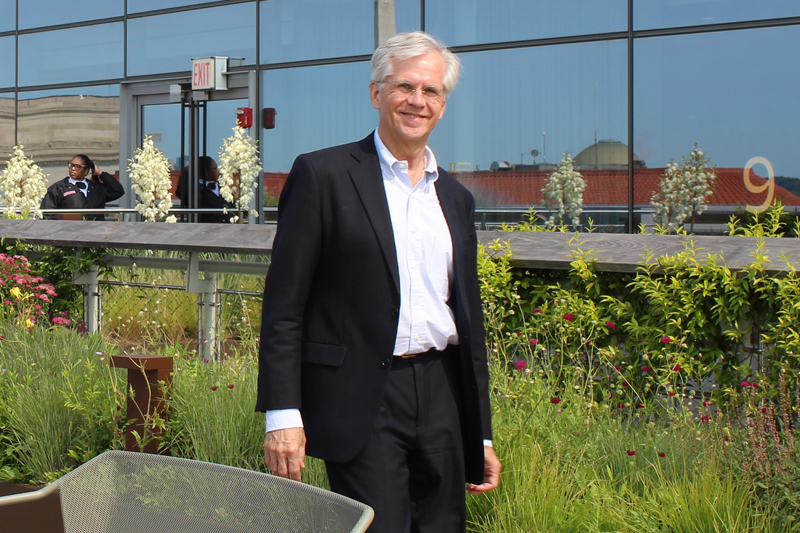
A shared commitment to saving lives
The Academy highlighted the power of collaboration, featuring four Swedish instructors: Eva Björk, Kenneth Svensson, Lars Ekman, and Rikard Fredriksson, and Peter Larsson. Their philosophical commitment and depth of expertise enriched the participants’ understanding of Safe Systems principles, inspiring attendees to become advocates for this life-saving framework. “The personal connection with these experts instilled a sense of enthusiasm that will ripple far beyond this program,” said Dr. Jeff Michael, Distinguished Scholar at Johns Hopkins. “This collaboration not only built competence but also created a cadre of experts committed to accelerating the adoption of Safe Systems principles.”
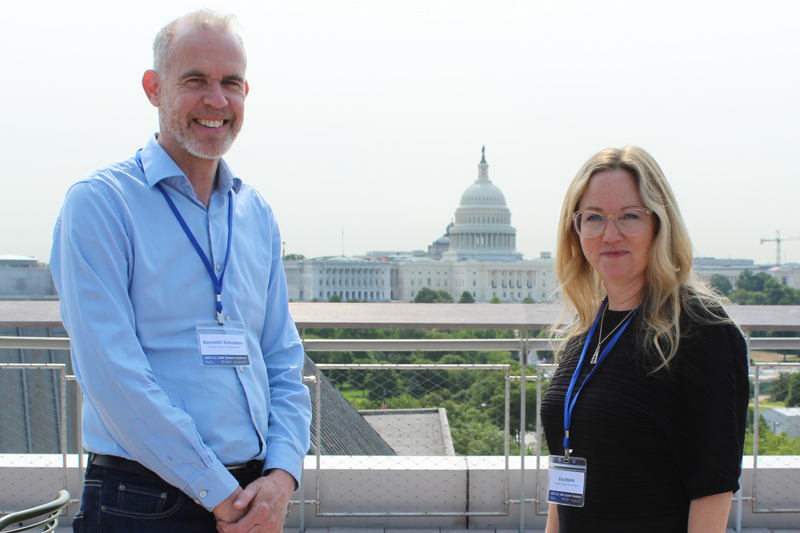
The Safe System Approach, pioneered in Sweden and adopted worldwide, reframes road safety by emphasizing system-level accountability rather than individual fault. The framework has proven its effectiveness in reducing fatalities and serious injuries.
“The U.S. is at a pivotal moment,” Dr. Michael added. “With a significant federal investment from the U.S. Department of Transportation’s $5 billion Safe Streets and Roads for All (SS4A) program, we have a unique opportunity to demonstrate that Safe Systems can work here. The expertise shared by our Swedish colleagues was indispensable in equipping participants to seize this moment.”
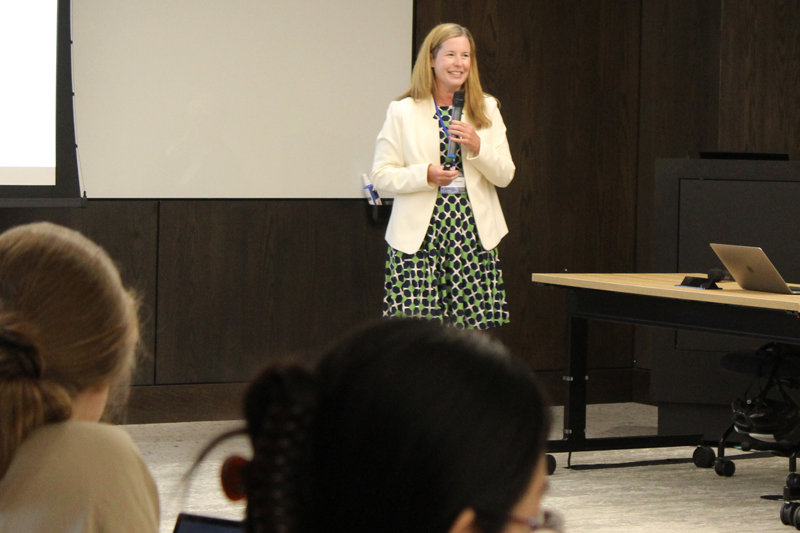
Insights from the Academy
The Academy culminated in a series of reflections led by Meghan Mitman, Regional Principal-in-Charge of the San Francisco Bay Area at Fehr & Peers, who highlighted key themes and strategies:
- Scalability and accountability: Safe Systems is adaptable but often misunderstood. Many gained new insights into how it demands accountability from all stakeholders.
- Reframing road safety: Discussions emphasized the importance of shifting away from victim-blaming to applying a public health lens, integrating equity considerations into every decision.
- Speed management: Identified as both a primary risk and a critical challenge in public discourse, speed management emerged as a recurring anchor for effective road safety strategies.
- Practical tools: Attendees explored innovative tools, such as land-use context overlays, target-speed design, and community-led hazard mapping.
- Collaboration for change: The “magic triangle” of alignment between agency staff, advocates, and decision-makers was highlighted as essential for advancing safe systems.
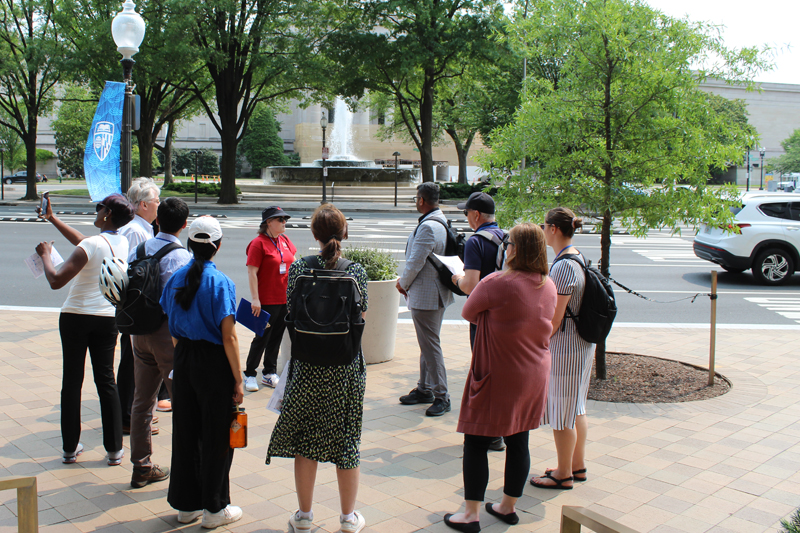
“The week’s candid discussions and practical exercises left participants energized and equipped to lead transformational change,” said Mitman. “They now see the Safe System Approach not just as a theoretical framework, but as a practical, life-saving strategy.”
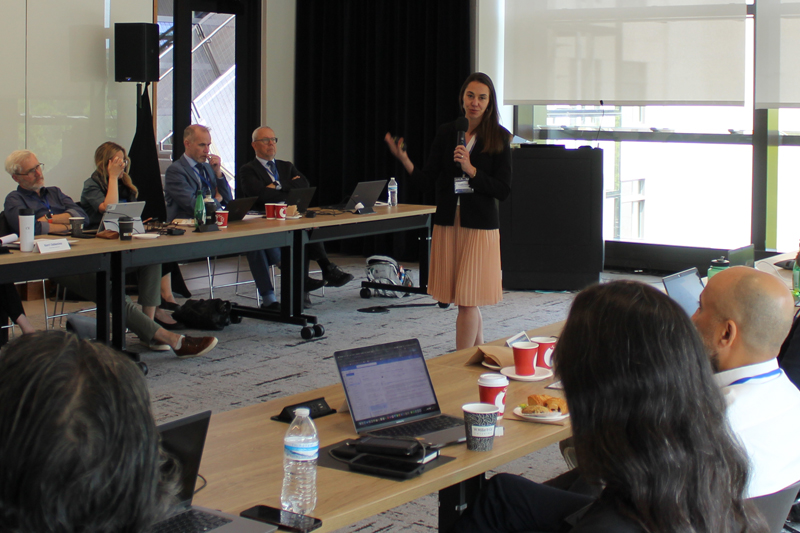
Sustaining momentum
Speakers including Keshia Pollack Porter, the incoming Dean of the Johns Hopkins Bloomberg School of Public Health, and Shannon Frattaroli, Director of the Johns Hopkins Center for Injury Research and Policy, who emphasized the urgency of sustaining this momentum. Natalie Draisin, FIA Foundation’s North American Director, said “Continuing to advance safe systems is critical. Road safety is a matter of political will, and this Academy shows how collaboration and knowledge-sharing can drive real change. It doesn’t happen overnight; Sweden has been at it for 30 years and continued implementing Safe Systems over many Administrations. If we want to save lives in the US, we must sustain the momentum we’ve harnessed.”
